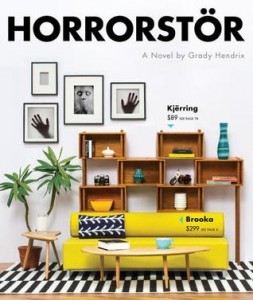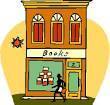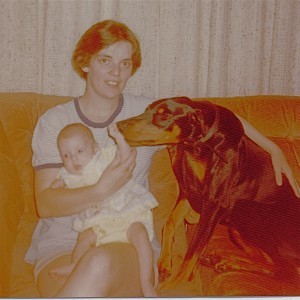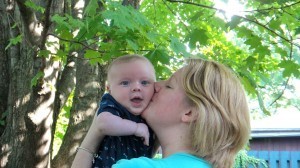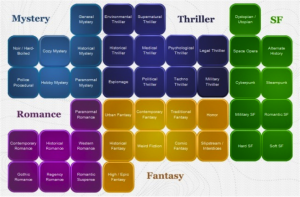Kasey Shoemaker's Blog
November 16, 2014
An Actual, Three-Dimensional Book
I bought a book.
That’s not the interesting part, and I promise you that there is one. I bought a hard copy of a fiction book. Some time ago, I hesitantly stepped into the world of digital books and became very attached to my kindle (we practically picked out china patterns together). My life and reading habits changed drastically, and I couldn’t have been happier for it. Additionally, I procreated, and my house seemed to shrink at the same time- funny how that happens. Due to baby stuff and the babies themselves, space became a highly valued commodity. I simply had no space for books. I know, I know, this seems like a Greek tragedy. Much like Antigone sacrificed, I moved my books to storage. I kept a few tomes out for reference, like my Works of Shakespeare because I never knew when I’d have to look up a character from Macbeth (happened recently- not kidding). And, as I pluck away on my current work in progress, I keep certain necessary materials on hand, such as a demonology encyclopedia. Side note: Never judge a writer by the books on her desk or her internet search history.
However, back to the aforementioned interesting part, as far as fiction pleasure reading, digital kindle versions were really the way to go for me. For one, I just love my kindle, and it loves me back. For two, if I had to make space for the three to five books a month I was buying, the babies would be buried in books, and anticipated scenario later, but not now. As a mom of two young kids and one high maintenance dog, I’m a sucker for anything that will make my life easier and less filled with clutter. If I had a hard copy of a book, it’d better be reference for writing or filled with coupons for wine, or possibly both.
After packing away this year’s Halloween devil woman costume, rolling up the spider web tights, and detaching the horns from my wavy red wig, I sat on my bed with a sigh wishing I had something different, something quirky to read in keeping with my Halloween spirits. I was a bit weary of my vampires, and I wanted a breath of fresh graveyard air. I was craving something different.
A quick troll on Goodreads led me to my “something different.” Horrostor piqued my interest immediately.
The story itself seemed far from original, but intriguing, nonetheless. What really hooked me was the packaging. Anyone who looks at this book knows immediately what it’s pretending to be, what it’s supposed to look like. We’ve all seen them in our mailbox and on coffee tables in our own homes- an Ikea catalogue. No catalogue looks quite as distinct. The horror story takes place in a store, much like an Ikea. The setting is arguably as important as any of the main players. Night Circus was much the same way: The setting was the story. And, that’s not a bad thing. In fact, it’s bold. It’s brave, and more importantly, it’s different. The book doesn’t just look like a catalogue when closed and sitting out on a table. No. It reads like one, too. It’s has pictures and advertisements of the fictional store’s products. And, those pictures get progressively creepier as the story does. If you know anything about me, you’re likely asking how long it took me to one-click order. The answer is less time than it took me to write this post.
I love this book, not only for the horror element, the unique format, and the obvious quirkiness of the author, but also for the fact that in spite of my current chaos, I bought the hard copy. It sits on my table, like the catalogue for which I really have no space.
As much as I am an advocate of technology, progress, and anything that makes reading easier for the general public, I still appreciate books as an art form. Horrorstor reminded me of that.
July 31, 2013
The Bookstore Experience
When I was a teenager, the bookstore was a beacon. Its plush chairs, caffeinated beverages, and new fiction shelf called to me. I’d curl up with whatever treasure I found and stay put for hours. In college, it was my second home, the place I did almost all my studying. It was also a pretty good place to meet guys. I won’t lie. I found that my oversized, heavy-as-hell collected works of Shakespeare warded off men with small brains. Handy filter, it was. The bookstore remained my happy place for many more years. It was a great source of overpriced coffee and wonderful conversation.
Then, something happened. I got married. So, there went my interest in meeting guys. I got a coffee maker. Then, I went and had a kid. My savior became Amazon. Formula, toys, clothes, formula, baby food, and formula (my kid’s a healthy eater) were all at my door two days after my sleep deprived hands found the one-click ordering button. Awesome. The Kindle allowed me to keep up with my voracious reading while managing the often unbalancing life of being a mother, employee, wife, and oh yeah, writer. Who had time to browse books? I downloaded them, ordered them, or unwrapped them from the packages waiting on my doorstep. In my mind, bookstores were those businesses that would probably not survive. I was sad, nostalgic, and wistful. But, I still ordered all things necessary for life on Amazon.
But, in spring of this year, something again shifted. The Little D started walking like a crazed monkey. And, in taking after his mom and dad, he already had a healthy appetite for books. Suddenly, bringing him to a bookstore wasn’t about me navigating a stroller through aisles that were far too narrow or hoisting a 25-pound, wriggling baby on one hip while using my other hand to keep him from slapping me. He could now browse to his own high-pitched delight. That section in the back, near the bathrooms became our second home. Books, a toddler play table, and air conditioning- all in one colorful, carpeted area. We had arrived.
On my drive to a different Barns & Noble this evening, I realized that I don’t go for myself anymore. Well, maybe for the coffee. But, all my reading is either e-book or shipped to me, if I desire the actual book. Amazon knows me better than TiVo ever did, and it’s more than happy to meet my reading needs. But, I go for the wiggly toddler in the backseat. As I pulled into the lot, I thought: “This is his experience now.”
And when I entered not our usual bookstore, I saw something surprising. That little children’s area wasn’t so little anymore. It was huge, and a big portion outside of it was dedicated to toys. We’re not talking about the table that had a few board games. There was an array of Playskool, Lego, and Fisher Price, along with some more independent, eco-friendly brands.
I saw very few laptops and almost no young pretentious people curled up around a book and a hot beverage. I did, however, see a lot of parents. And, those parents were actually purchasing books and toys, not just browsing. So, this doesn’t say much for the adult print book industry, but it is a positive step for the long-suffering bookstore. They’re adapting. And, that’s a damn good thing because they’re going to need to in order to survive.
D and I had a great time browsing and buying books. But, apparently, being a bookstore monkey is exhausting.
March 28, 2013
In Memory
Every now and then, I get a little personal on this site. And, something very personal and painful happened in my life recently.
This week, specifically, this past Tuesday, my mom passed away. Some of you may know that my parents are in Florida and I’m in Connecticut, making it all the more difficult to process. Her obituary really didn’t do the woman justice, and I’d hate it if those were the last words on her, so in the interest of closure on my part and possibly some insight for you, I’d like to put down some words about my mother. Thanks for indulging me.
Carolina Sue Senkovich (Carolyn to those who were close to her) was a stay-at-home mom who dabbled in many hobbies from oil painting, organ playing, charcoal sketching, writing, gardening, and cooking. She found great joy in music, and when in better health could start quite the living room dance party. She was 5’ 2.5” (not to be confused with the much shorter 5’ 2”). Anyone who called her 5’ 2” was immediately and vehemently corrected. Many were drawn to her big, warm brown eyes and sweet smile. But, her stature and quiet demeanor formed a deceptive cover for a strong, feisty, and incredibly sarcastic woman. As her daughter, I credit her with instilling in me two of her strongest passions- books (especially Dean Koontz) and animals. She fiercely loved her pets and could nurse to health the scraggliest of creatures. It is my belief that the Lord sent several of His downtrodden furry ones her way, knowing Carolyn would care for them.
On March, 26, 2013, the Lord mercifully ended her battle with Cancer. She was 61. Her husband, Dale, her daughter, Kasey (me), and her son, Terry mourn her passing. Since God took her home, I have been reminded of lyrics from one of her favorite songs by The Righteous Brothers:
If you believe in forever
Then life is just a one-night stand
If there’s a rock ‘n’ roll heaven
Well you know they’ve got a hell of a band…
Well, Mom, I hope you have a front row seat for the concert and plenty of dancing room in the aisle.
March 24, 2013
Distracted Much?
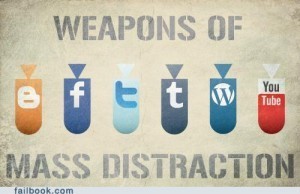
Sometimes I can’t wait to get to my writing. I feel the quiet but insistent call of my laptop. I just can’t not write. Then, there are the other times- the times when everything else seems on my mind except my novel. Here’s what runs through my mind during those… you know, other times.
1. I need coffee before I can really start. I’ll make some.
2. Oh, the dog saw me get up and looks like he missed me. I’ll give him a quick cuddle.
3. Okay, coffee made. Now, let’s sit down and get to it.
4. I should review my outline first.
5. Yay, the coffee’s ready.
6. We’re running low on coffee filters. I should add that to the list. Where’s the list?
7. For that matter, where’s my phone? I hope I didn’t leave it in the car.
8. Did I lock the car?
9. Where does all this dust on my desk come from?
10. Looks like the baby got something sticky on the keyboard.
11. Okay, gotta clean the desk and keyboard first. What could he possibly have gotten on it?
12. I wonder if I let him play with my electronics too much.
13. Now, back to it. Where was I?
14. I’ll just take a quick look at Facebook.
15. Like a bunch of photos.
16. Does everyone have plans today? It seems like everyone’s doing something.
17. Do we plan enough family outings?
18. I should check tomorrow’s weather.
19. If it’s nice, what would we do?
20. If it’s raining, what would we do?
21. Okay, back to my outline. It says that I intended to start this chapter with an action sequence, but that doesn’t really feel right.
22. Re-read last chapter. Yeah, that doesn’t go too smoothly into the action. I need something else to segue.
23. Write a new scene.
24. Coffee’s cold. Have to reheat it.
25. This is the worst microwave ever. It actually makes things colder.
26. Re-read what I just wrote.
27. Hate it.
28. I was right about going straight into the action.
29. But, I should have built better momentum for it in the previous chapter.
30. Re-read previous chapter.
31. Hate that too.
32. Revise previous chapter.
33. I edit too much.
34. Research writing retreats. There are too many distractions at home.
September 7, 2012
So how’s the next book coming?
So how’s the next book coming?
I get that question a lot. Ever since I released Silver Vengeance in July of 2011, people have asked me about the next book. In my mind, that’s a bit of a loaded question, but my readers, my audience may not know why. Since I value you all, I’m going to get a little personal. My husband and I had a loose conversation in 2010 about starting a family. At that time, my book had been pitched to editors in New York City, and I felt that I wanted to give it a real chance. I told my husband that I wanted to wait until after my book was published. I received a lot of interesting feedback from editors and agents. And, after some careful consideration, I heartily ignored them, did some rewrites that I had been aching to do, some revisions that were purely me, had it edited, and then published it independently. If you’re curious how I came to the decision to independently publish and what I saw as the pros and cons, I talk about it here and here. Well, I released my book to the wide open world on a Wednesday and went to the doctor on a Friday. We were pregnant. I got my book and our baby in the same week. Life is awesome like that.
Naively, I told myself that I would be writing my second book while pregnant and completing it by my due date. (Pause for laughter). I didn’t have terrible morning sickness, but I did have a double, perhaps a triple, dose of exhaustion. I basically napped my entire first trimester. I could barely stay awake to read, let alone promote my book. When I woke up around October, I wrote. I wrote some odd, hormone filled prose that I quickly deleted. Pregnancy hormones are… interesting to say the least. I wrote some more. I blogged. I read. I wrote reviews. I joined an awesome writer’s group. I deleted what I wrote. I read some more. I wrote an outline. I deleted it. See a pattern? Then, in March of 2012, I gave birth. Maternity leave lasted about 35 seconds, and then I was back to work. I tried to read as voraciously as I used to, and when that was lost to bottle washing, diaper changing, and perfecting the shh, shh, shh bounce maneuver, I realized my habits had to change.
My husband then got me the most amazing birthday gift- a Kindle. Having my ebook reader changed my reading habits drastically. I no longer had to wait for a trip to Barnes and Noble to get my next book. I could barely go shopping for food, let alone books. Instant gratification is a truly beautiful thing, as is the fact that my Kindle fits in the diaper bag. It also fits easily in one hand, while my baby sits on my lap with his own book. Yes, this is as cute as it sounds. So, now that I’ve adapted my reading habits to fit into my new, hectic life, I am working to revamp my writing habits. This, as you can imagine, is more difficult. Currently, I’m writing more and deleting less. This is progress.
I have a vision for the Silver series. The next book will take place primarily in Miami. Nick and Gabby’s story and romance continue as they face an even more ruthless foe with dark plans for the underworld of werewolves, witches, and demons. A great deal of this story is outlined in my mind, but because I will not have long afternoons filled with quiet writing and reflection for many more years, I am working, little by little, to put an exceptionally detailed outline together. Ideally, I will be able to pick up and put down my writing with the same ease and lack of frustration as I do my Kindle. Overall, the series will comprise four books. Following Silver Vengeance will be Silver Heat, Silver Gamble (taking place in Vegas), and, finally, Silver Secret. Because, as a Kindle owner, I rarely buy the first book of a series unless I know the second one is already available, I understand the frustration of my readers who tore through a quick and suspenseful read with no second book in sight. I wrote Silver Vengeance in under six months. Actually, I wrote, rewrote, and rewrote it again in under a year. Essentially, I am a quick writer.
The words are coming, I promise. However, I do not plan on releasing Silver Heat until Silver Gamble is nearly done. It’s only fair for you to have the next book at the ready for you to download or order. I want you to be as addicted to this series as I have been to several others in the past few months, sometimes reading two to three books in a week.
People tell me nearly every day that children grow up so fast. It’s true. It’s painfully true. Less than six months ago, I was carrying my little Desmond inside me, and now, he has two new teeth and a determination to crawl. He laughs, pets his dog, gives kisses, and loves bananas. He won’t be little forever. And, as his adoring mom, I know that Nick and Gabby, the Silver Series, and hopefully, my readers will wait.
So, in answering the question about how the writing is going, I say this: It’s going. Sometimes, it’s slow. Sometimes, it takes off like an out-of-control flame spreading across dry brush. Sometimes, I’m not writing at all: I’m laughing at the new noise my son learned to make or enjoying a rare moment alone with my husband. But, the stories still exist in my mind and heart, and as any writer knows, they have to come out. They have to. And, eventually, they will.
I will keep you updated. In the meantime, here’s a sample of the other project that has been occupying my time.
May 19, 2012
Myths about Going Indie (#2)
Independently publishing a novel is, for some writers, a difficult decision to make. It certainly was for me. Readers, writers, industry experts, and your neighbor will likely have an opinion. And you know what they say about opinions and… well, you know what they say. Everyone has one. Several myths about self publishing persist. Click here for my post about #1.
Myth # 2: Letting the publishing company have creative control is best.
As with any industry, publishing is all about investing in a product it already knows will sell. Therefore, originality goes out the window when a slush pile of the same old stories sits just awaiting some eager editor waiting to prove herself with a new tale about sexy vampires or a young, hot, sword-wielding vigilante. Why go out on a limb with something entirely different when more of the same is readily available and people will buy it? This mentality is what I found so very frustrating. I heard time and again that my novel was great but that it didn’t fit the mold. In fact, that’s what I loved about my book, and I wasn’t alone. Publishing companies want a perfect blend of something that’s never been done and something they know how to sell because they’ve sold so many before it. That mold is firm, and some writers will hack away at their precious pages until the book resembles the industry’s expectations but is nothing like the brilliant manuscript they wrote.
I’ll admit there is a delicate balance between being too married to one’s own work that any revision, any criticism seems like a brutal and undeserved attack and being so desperate to please any editor, agent, consultant, or remotely invested reader that one will write off characters, alter key plot points, or change settings or time periods. At some point, that writer must decide how much of the book to sacrifice to the gods of publishing.
This brings me to one of the top ten reasons to independently publish: creative control. At the risk of sounding petulant, I have to say that there are simply too many rules in publishing. Independently publishing a novel is liberating. Suddenly, I wasn’t bowing and scraping at the feet of editors and agents over word count, the name or ages of my characters, the setting, or how many books there should be in the series. It ends where I want it to- the book and the series as a whole. The characters look and speak the way I intended. I believe in knowing the audience and understanding the expectations of the genre, but I also have faith in the readers’ ability to accept and become a fan of something that fights against the old tropes spoon-fed to them by the publishing industry. I know this because I have been a reader for as long as I’ve been a writer. We, as writers, actually understand the genre and the market almost as well as the publishing companies because we’re our own target audience.
When I speak of creative control, I’m not talking about serving up an unedited, unpolished mess to the reading world. I’m talking about a writer’s ability to independently publish the best version of his or her manuscript. Before a writer self publishes a book, I recommend having at least two skilled editors comb through it. However, revisions can be wide ranging. Clarifying pronoun usage is a far cry from changing the relationship between characters or completely scrapping an ending. Handing over the red pen to someone more skilled is not tantamount to relinquishing creative control, and editing a book does not destroy the writer’s authentic voice. I feel that with the flood of self-published novels arriving on the market daily I can’t be clear enough about this point.
Creative control is the flesh and bone of a novel. Edits should be only the cosmetics. Lipstick on the teeth is one thing; however, even Uma Thurman would look a bit off if she shaved half her head. Don’t let the publishing industry give your book a nose job and cheek implants. It won’t be recognizable. But, I recommend making sure its part is straight.
February 28, 2012
Book Review- Monster Hunter International
 Monster Hunter International by Larry Correia
Monster Hunter International by Larry Correia
My rating: 5 of 5 stars
Laugh-Out-Loud Fun, Gory, and Captivating
Larry Correia is my new favorite writer to watch.
Monster Hunter International is labeled a "modern fantasy," which is an apt genre category for it. This isn't the kind of profound prose that will change your life. It is, however, one hell of a fun ride. I absolutely love Correia's sense of humor! One of my favorite aspects of the humor in this book is that it wasn't relegated to the main character making one wisecrack after another. The entire tone of this Monster Hunter International was hilarious. However, the real quality of the novel comes from the relatable, dynamic characters.
Owen Pitt, the accountant, doesn't seem like an impressive character. And, that's just the point. He doesn't start the story as a vigilante, hero, or hunter of evil. However, he gets there pretty quickly. The wild adventure starts immediately. It wastes no time on exposition or lengthy character development. The reader watches Owen grow as the plot unfolds. The cast of characters he joins is diverse, interesting, and like him, relatable.
It's one thing to have an awesome monster story with gripping, strongly written action sequences, which this story has, but it's entirely another to write a group of characters about which the reader can actually care. A lot of fantasy books have two or three characters buzzing around the protagonist, and the reader can safely get invested in that handful of personalities, figuring that they won't buy it in at least the first few books in the series. I got attached to every one of the characters, from Holly the stripper to Julie's trouble causing father. The next installment is on my must-read list. Like I said, Larry Correia is one to watch.
View all my reviews
January 17, 2012
Book Review- The Night Circus
 The Night Circus by Erin Morgenstern
The Night Circus by Erin Morgenstern
My rating: 4 of 5 stars
The Night Circus is not just a novel: It's an experience. It's like the book equivalent to watching Avatar or the ice scene in Dr. Zhivago. The magic of the circus setting and the Victorian style narrative creates an experience of decadence and lusciousness. I loved sitting down to read this book. Every time I came back to it, I was drawn into the world of magic, fantasy, and forbidden love.
Celia and Marco are the magicians, bound together in rivalry, who fall in love. They start in the novel as children living out their fathers' twisted game and are then trained for their ultimate impending competition. The source of their individual powers is handled in two different ways. With Celia, it's an innate power; however, for Marco it's a gift of manipulation of perception. But, in spite of differences, the result is magic nonetheless. Whether it's a leather jacket being transformed into doves, a perpetually burning fire, kittens performing acrobatics, a fire breathing paper dragon, or a truly spiffy ice garden, the magic is truly intoxicating.
I would classify this book as a strong character novel. However, Celia and Marco, in this case were side characters. They were not as developed as I would have liked. Even though, the reader first encounters the characters as children, their depth is never truly realized. This is partially a product of third person parallel narratives, which inevitably draws focus from the two main characters and spreads it across other scenes and people. Another reason for this disconnection between the main characters is the timeline in the book. I personally felt a bit deprived of the development of the love affair because the book jumped across three years after their first stolen kiss and bounces back and forth frequently. The effect is heightened suspense but an ultimate detachment from the characters and their developing love affair.
But these are really small criticisms considering what the trade-off was. The reason I maintain that this is a strong character book is because I think of the circus itself as being the main character. The reader sees it from its inception to its… well, to avoid spoilers, I'll call it a transformation. The circus is the reason to turn over 300 pages. Celia and Marco's relationship is romantic and intriguing, but it's not what pulls readers into the narrative. I fell in love with the most remarkable and dynamic character in the book, the one with the dark, mysterious magic that engrossed me from the beginning. The Night Circus is not the setting of the book. It's the entire novel, and it's worth every page.
View all my reviews
December 27, 2011
The Trouble with Genres
 Genre is truly a tricky thing. This all-important label helps not only to identify a novel but also the book's intended audience. Without it, a book and its author could suffer a serious identity crisis. And, it was honestly one of the aspects of marketing my book that I struggled with the most. I'd written the entire first draft without much thought to its specific genre. Then, when left with the task of pigeonholing it, I ungracefully stumbled into calling it paranormal fiction. At my first fiction conference, I was told under no uncertain terms was it paranormal fiction. I often wonder how educated that assessment was coming from a distracted literary agent who half listened to my one-minute pitch. Nevertheless, she said paranormal fiction immediately brings to mind the genre's sister, paranormal romance, and unless it was heavy on the romance, I was better off calling it urban fantasy. From then on, that was my book's label.
Genre is truly a tricky thing. This all-important label helps not only to identify a novel but also the book's intended audience. Without it, a book and its author could suffer a serious identity crisis. And, it was honestly one of the aspects of marketing my book that I struggled with the most. I'd written the entire first draft without much thought to its specific genre. Then, when left with the task of pigeonholing it, I ungracefully stumbled into calling it paranormal fiction. At my first fiction conference, I was told under no uncertain terms was it paranormal fiction. I often wonder how educated that assessment was coming from a distracted literary agent who half listened to my one-minute pitch. Nevertheless, she said paranormal fiction immediately brings to mind the genre's sister, paranormal romance, and unless it was heavy on the romance, I was better off calling it urban fantasy. From then on, that was my book's label.
However, a label can make an enormous impact on a book. Suddenly, my fiction novel, written before it was categorized, had an already established audience and with it a collection of expectations. Janice Hardy's post addresses these expectations:
"What readers expect. Fantasy is all about other worlds that can't exist, mixed with magic, mysticism, or supernatural elements. These are the defining characteristics of the fantasy genre. Just like spy thrillers have their own characteristics and reader expectation. There were aspects of the spy thriller I wanted to incorporate into my fantasy story, but at its heart, it's all about the magic and the fantastical world.
When a reader picks up a book in a genre, they want certain traits. Picture your favorite band. Now imagine going to their concert and hearing them play a totally different type of music. Country instead of rock, rap instead of jazz. Even if you like the new type of music, odds are you'd be pretty unhappy at the bait and switch. Genre helps readers find the types of books they want to read. It also helps bookstores know where to shelve books, and what to suggest to their customers. Ditto for libraries."
The publishing industry considered it a hot but overly saturated market. Readers had one of three reactions: strong interest (because they were long-time fans), rejection (usually due to thinking it was bloody, scary, or too steeped in fantasy), or confusion (typically a result of never having heard the term urban fantasy). The first group continued to ask questions about the plot and setting, all the while growing more and more interested. For the middle group, I would typically explain that it was bloody without being gory, suspenseful rather than frightening, and a fantasy set in our contemporary world. And, for the latter group, I stupidly found myself eloquently explaining the term urban fantasy and its roots instead of explaining my book, which didn't necessarily fit neatly into the category. I did that only a few times. However, people still have preconceived notions about it based on the label. I have fielded questions, such as "Does it have vampires?" (no), "Is it like Twilight?" (um, big no on that one). "Will my teenager like it?" (absolutely), "Will adults like it?" (yes, more than the teenagers).
Essentially, the genre label, meant to be helpful to the publishing industry, has proven confusing to the readers. Some expect it to fit nicely on the bookshelf next to other urban fantasies where a barely-clothed, well-endowed woman with a steely expression sits splay-legged in a graveyard. No offense to the character on that book cover, but when my Gabrielle Gayle sets out to demolish were-witches, she does so with all her parts covered and protected. She's beautiful and sexy, but she will leave the lipstick at home in favor of packing her daggers. But, I have accidentally found myself on my soapbox about the over sexualization of female heroes in fantasy. Back to my point, for months, I trolled the aisles of bookstores and pulled countless titles off the shelves falling under the urban fantasy umbrella, lined them up to look at their covers, and asked myself how, and even if, my novel fit in with these. It does, mostly, but it also fit in with other books, novels that are a part of another sub-genre, dark fantasy. Dark fantasy has closer ties to horror than urban fantasy does, and poor horror has its own battles to fight when it comes to audience presumptions. After only a few months as a member of the New England Horror Writers, I have already been to some events where audience reaction was either excitement or blunt rejection. At least people know what it is to be classified as horror, for the most part. But, horror seems to be even more polarizing than fantasy. People either can't get enough of it or steer clear of it, buying the books for that odd friend or family member who likes "that kind of stuff."
With more and more novels being ones that cross genres, affixing a book with one specific genre label seems to be more troublesome than clarifying. Publishing companies can't get by without the hard and fast categories and will at times allow new ones to spring up because every book simply must have a place. They revel in the preconceived notions held by audiences because it makes marketing that much easier.
But, what about the writer?
What happens to the unpublished writer spending thousands of dollars on fiction conferences who hears time and again that one particular element, while brilliant, simply isn't found in that specific genre? One writer could hear from an agent that his or her science fiction book has too much science and not enough character while another agent could tell him science fiction is supposed to be more about the concept and less about the characters, all based on expectations of the genre. What's to keep that writer from hacking at his or her work removing the book's most poignant and well-crafted pages only to replace them with elements that, for no better reason, exist simply because they fit better in the genre? How much should a writer mold the book to fit the genre? Shouldn't it be the other way around? After all, books are created by writers while genres are made by publishing companies to classify books?
Another issue is that there are likely too many genres for readers and writers to be aware of them all. Below is a genre map from Book Country. Notice that dark fantasy isn't included? That's because it's only recently been recognized as its own sub-genre.
And, there's no fixed formula or set of criteria for a book to meet before it's labeled. And, an additional side effect of genres is that they often don't settle with just the book. The labels attach themselves to the writer as well, like mold. Novelists aren't simply writers once they've written a genre book. They're fantasy writers, mystery writers, romance writers, etc, leaving one to wonder the following:
Do writers themselves also conform to a specific genre to satisfy expectations of the audience and the industry? And, what does this mean for writing as a craft?
December 20, 2011
A Dose of Funny (2)
I'm here to with another dose of humor only us writers could truly enjoy.
Happily searching the internet, I found this little joke. Enjoy!
A writer died and was given the option of going to heaven or hell.
She decided to check out each place first. As the writer descended into the fiery pits, she saw row upon row of writers chained to their desks in a steaming sweatshop. As they worked, they were repeatedly whipped with thorny lashes.
"Oh my," said the writer. "Let me see heaven now."
A few moments later, as she ascended into heaven, she saw rows of writers, chained to their desks in a steaming sweatshop. As they worked, they, too, were whipped with thorny lashes.
"Wait a minute," said the writer. "This is just as bad as hell!"
"Oh no, it's not," replied an unseen voice. "Here, your work gets published."


